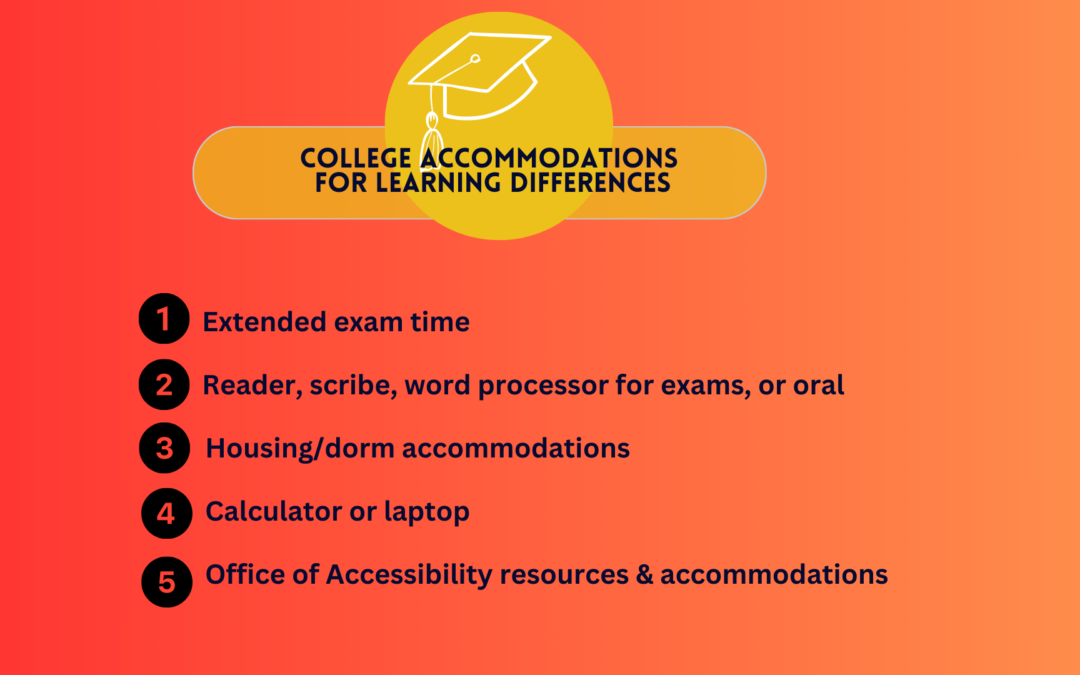What is the correct term?
Learning differences and disabilities (LD) are often used interchangeably. LDs don’t affect intelligence but may impact how the brain processes information. With proper support, children with LDs can still learn and succeed.
The students I have coached with learning differences share many of the same traits:
- An ability to articulate their LD.
- Patience with themselves (a trait developed over time).
- A commitment to thrive academically.
What are the best colleges for students with learning differences?
Most colleges have a disability services office. The term “Office of Accessibility” is quite common today. Colleges are required to provide reasonable accommodations for students who disclose a disability. But, not all colleges offer the same level of support. What exactly does “reasonable” mean, and is it sufficient for your student?
What colleges offer excellent support?
While plenty of resources on the Internet will provide you with a list of colleges offering excellent support services, be sure to learn firsthand what accommodations are offered. Some may also provide support services for an additional fee.
Common Accommodations (examples)
- Extended exam time
- Calculator or laptop
- Take exams in a room with reduced distractions
- Assistance of a reader, scribe, or word processor for exams
- Option for an oral exam
- Allow the student to tape-record lectures.
- Peer note takers
- Housing/dorms accommodations
- Classroom seating
- ASL interpreters
During your college search:
Meet with or contact a disability services office (or office of accessibility) to learn about their accommodations and support. Keep in mind that the IEP ends at high school graduation.
Should I write about my learning difference in my main college essay?
Students often ask me this question. If a student has overcome obstacles or learned something invaluable about themself, then yes. Alternatively, they can write about their LD and tell a story of success in the Common Application Additional Information Section.
Writing tips for your personal essay:
- Engage the reader!
- Let your personality shine!
- Relevant details will make your essay stand out!
- Be positive! Soften those negative words! You don’t want to be portrayed as a “victim.”
- Be concise! Hold your reader’s attention by removing extra words I call “fluff.”
Final Comments:
Do your research! There are excellent online resources to help you get started. Your high school counselor is also an excellent resource for guidance.
Students with learning differences can go to college and be successful!

